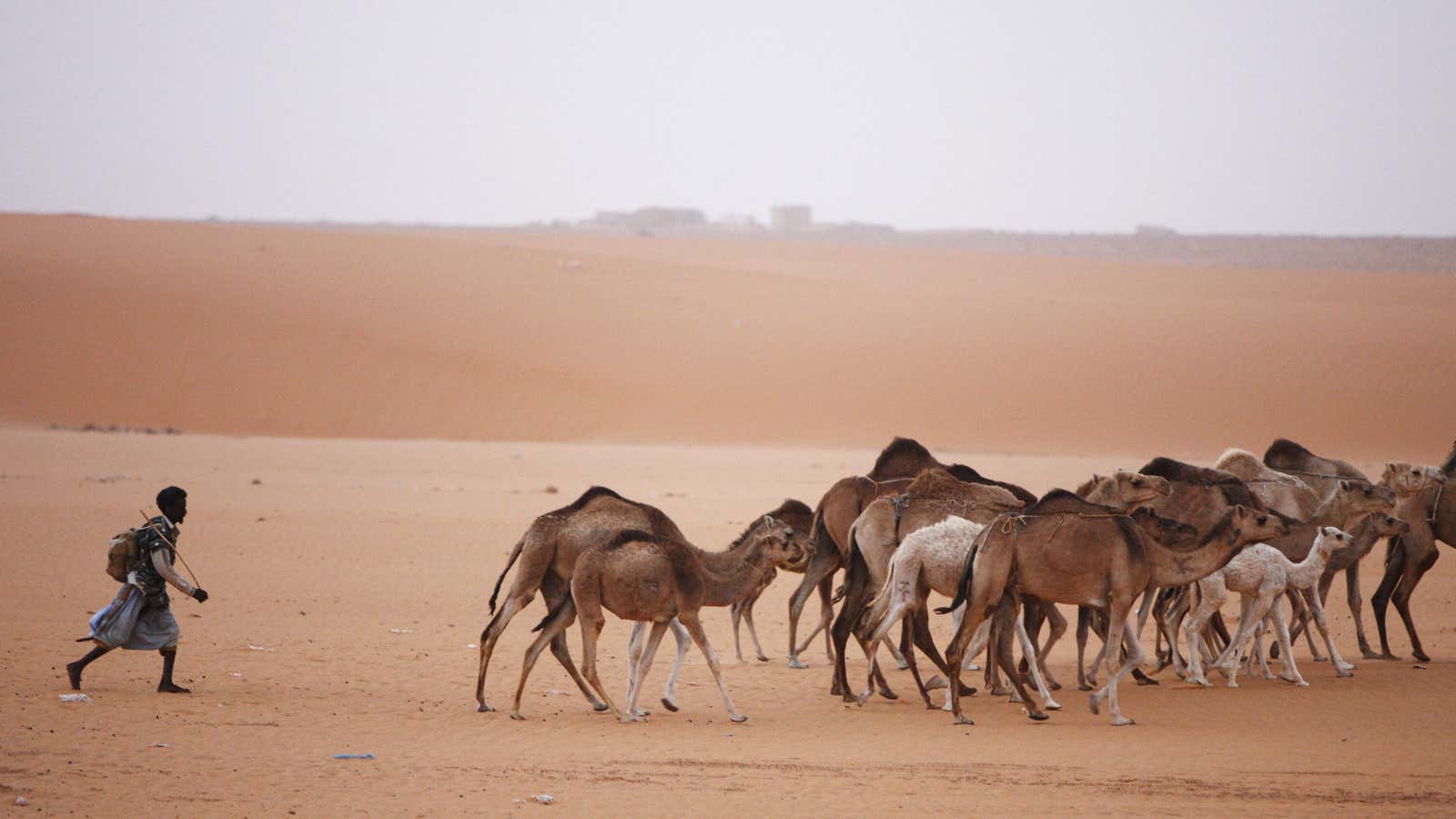The African Union (AU) has rebuked Mauritania for failing to prosecute the perpetrators of slavery—a prevalent, and at times institutionalized, practice in the North African nation.
In a landmark ruling, the AU said the country failed to adequately enforce its anti-slavery laws, didn’t duly compensate two child slaves, and handed out lenient sentences to a family of slave owners. The ruling, a first for the continental body, stated that authorities had failed to fully investigate or prevent cases of slavery, creating a culture of impunity. The directive also noted the country failed to act in the best interests of its children, failing to protect them from discrimination, child labor, abuse, trafficking, and other harmful practices.
The verdict came after two brothers appealed to the AU’s Committee of Experts on the Rights and Welfare of the Child (ACERWC). Said and Yarg Ould Salem were born into slavery and were made to work for the El Hassine family seven days a week, given leftovers to eat, and faced punishments. After escaping in 2011, their master Ahmed Ould El Hassine was arrested, sentenced to two years in prison, and ordered to pay 1.35 Mauritanian ouguiya ($3,800).
Human rights groups argued that the sentence and compensation weren’t commensurate with 11 years of enslavement. El Hassine was released from jail pending the case appeal from the state prosecutor.
After hearing the siblings’ appeal, the ACERWC reprimanded Mauritania for its leniency and called for the prosecution of all members of the El Hassine family involved in their enslavement. The pan-African body also said the boys should be enrolled in school, given birth certificates and identity cards, and provided psychosocial support in order to rehabilitate them from the physical and mental abuse they endured.
Mauritania is considered slavery’s last stronghold; slavery wasn’t made a crime until 2007. The country ranks 7 out of 167 in the Global Slavery Index, with an estimated 43,000 living in modern slavery conditions, out of a population of 4 million. The practice especially affects the Haratins, who have been caught in a cycle of servitude enforced by the Moors, the lighter-skinned descendants of Arab Berbers. Their masters sell them or buy them as gifts, provide little education or pay, and they are prohibited from inheriting property or giving testimony in court. There have also been reports of government collusion with Arab Berbers into intimidating slaves who break free from their masters.
ACERWC said Mauritania should allocate an adequate budget to fighting slavery, ensure that its lawmaking, security, and judiciary branches appreciate the “seriousness” of the issue, and conduct a survey to assess the number of enslaved children. Advocacy groups like Minority Rights Group International and Anti-Slavery International welcomed the ruling, saying it “has the potential to bring about real change in how Mauritania addresses the criminal prosecution of slavery.”
